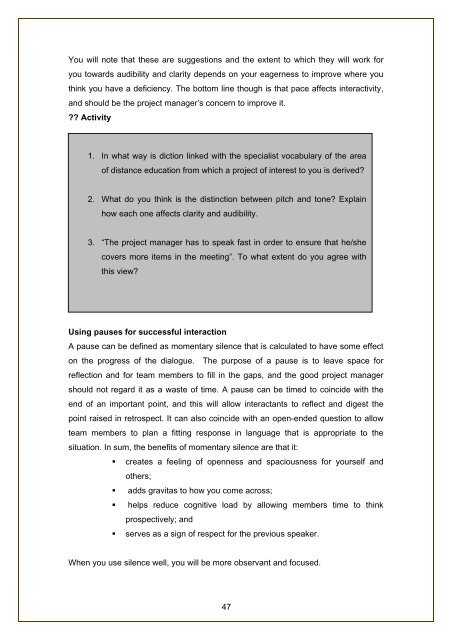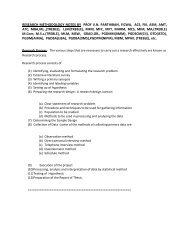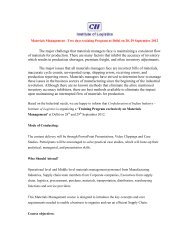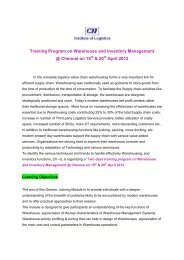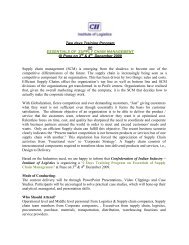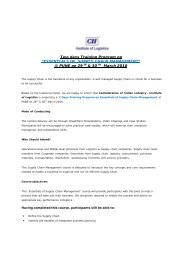successful project management - Commonwealth of Learning
successful project management - Commonwealth of Learning
successful project management - Commonwealth of Learning
You also want an ePaper? Increase the reach of your titles
YUMPU automatically turns print PDFs into web optimized ePapers that Google loves.
You will note that these are suggestions and the extent to which they will work for<br />
you towards audibility and clarity depends on your eagerness to improve where you<br />
think you have a deficiency. The bottom line though is that pace affects interactivity,<br />
and should be the <strong>project</strong> manager’s concern to improve it.<br />
?? Activity<br />
1. In what way is diction linked with the specialist vocabulary <strong>of</strong> the area<br />
<strong>of</strong> distance education from which a <strong>project</strong> <strong>of</strong> interest to you is derived?<br />
2. What do you think is the distinction between pitch and tone? Explain<br />
how each one affects clarity and audibility.<br />
3. “The <strong>project</strong> manager has to speak fast in order to ensure that he/she<br />
covers more items in the meeting”. To what extent do you agree with<br />
this view?<br />
Using pauses for <strong>successful</strong> interaction<br />
A pause can be defined as momentary silence that is calculated to have some effect<br />
on the progress <strong>of</strong> the dialogue. The purpose <strong>of</strong> a pause is to leave space for<br />
reflection and for team members to fill in the gaps, and the good <strong>project</strong> manager<br />
should not regard it as a waste <strong>of</strong> time. A pause can be timed to coincide with the<br />
end <strong>of</strong> an important point, and this will allow interactants to reflect and digest the<br />
point raised in retrospect. It can also coincide with an open-ended question to allow<br />
team members to plan a fitting response in language that is appropriate to the<br />
situation. In sum, the benefits <strong>of</strong> momentary silence are that it:<br />
• creates a feeling <strong>of</strong> openness and spaciousness for yourself and<br />
others;<br />
• adds gravitas to how you come across;<br />
• helps reduce cognitive load by allowing members time to think<br />
prospectively; and<br />
• serves as a sign <strong>of</strong> respect for the previous speaker.<br />
When you use silence well, you will be more observant and focused.<br />
47


